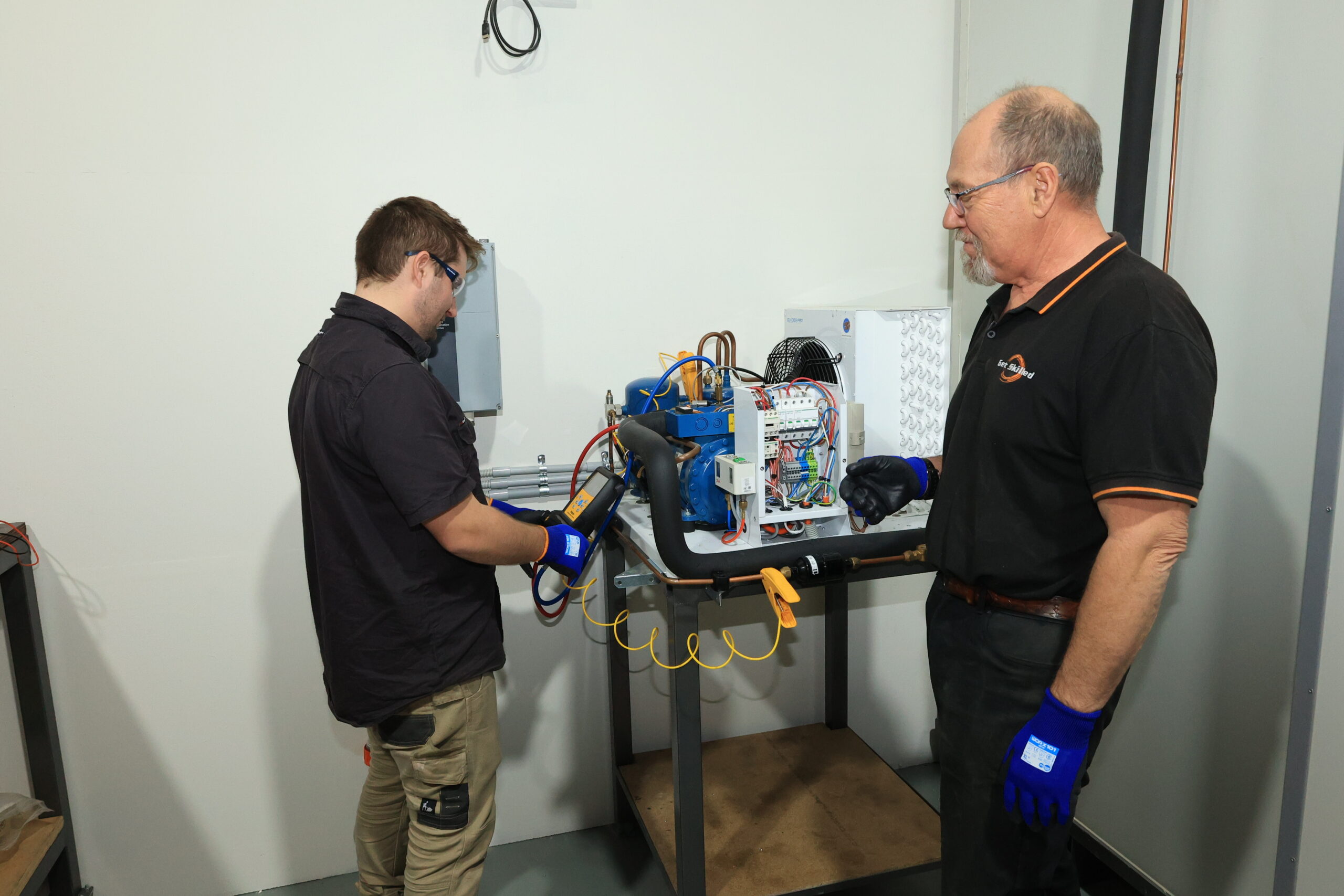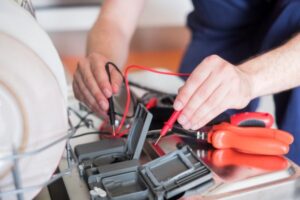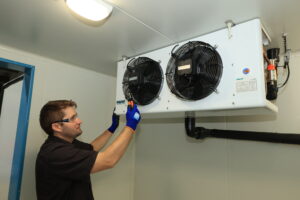Queensland maintains strict safety standards when it comes to electrical work. Most electrical tasks must be carried out by a qualified electrician. But that can slow you down when you need to perform incidental tasks as part of your normal duties.
Due to the requirements of some trades that need to perform incidental electrical work, the Electrical Safety Office provides a restricted licensing scheme for trades other than electricians.
Holding a Restricted Electrical Licence allows you to carry out certain tasks as part of your day-to-day workload. That can streamline your work and allow you to expand your services!
In this article we’ll learn about the eligibility criteria and what you can do with a QLD Restricted Electrical Licence.
What is a QLD Restricted Electrical Licence?
A Restricted Electrical Licence allows you to perform certain electrical tasks in the “ordinary course” of your trade. For example, a restricted electrical licence is required for the following:
- Plumbers that work on hot water systems
- Refrigeration technicians needing to connect or disconnect air conditioners and fault find control systems and major components
- Gas fitters that service household and commercial gas appliances
- Mechanical fitters that need to connect or disconnect electric motors
- Biomedical engineers who work on medical systems
In Queensland, restricted electrical licences are issued by the Electrical Safety Office (ESO).
Licences have specific conditions that dictate which electrical tasks you are allowed to perform. Each licence applies to a particular category of work, and it may carry additional conditions (e.g. you can only perform electrical work for a specific employer, or a certain type of electronic equipment).
What Can You Do with a QLD Restricted Electrical Licence?
A restricted electrical licence allows you to carry out certain tasks that relate to your trade or calling. These restrictions are outlined on the licence.
The work you’re allowed to do depends on your trade, qualifications, employer and the tasks you need to perform in the ordinary course of your work.
For example, a plumber can obtain a restricted electrical licence if they need to service water heaters. But plumbers can’t obtain a restricted electrical licence to service the electrical components of other appliances (e.g. washing machines, air conditioners).
Similarly, a restricted electrical licence may come with conditions that limit what you can and can’t do. A technician who services electrical equipment may only be allowed to work on certain types of devices, such as medical equipment or office appliances.
The types of work that can be carried out on a restricted electrical licence includes:
- Replacing flexible cords and plugs
- Testing that equipment has been isolated before connection or disconnection
- Disconnecting and reconnecting electrical wiring equipment
- Replacing electrically operated equipment with identical equipment
- Other tasks outlined by the licence conditions
Holding a restricted electrical licence does not allow you to perform electrical installations or alter existing installs.
QLD Restricted Electrical Licence Eligibility Criteria
Working with electricity is dangerous. As such, the ESO only issues restricted electrical licences to applicants that have completed the relevant units of competency or training to their industry.
You need to meet one of the following requirements:
- Current Certificate III (or higher) qualification in a recognised trade
- 3 years’ experience in a job that requires you to perform restricted electrical work
- An overseas qualification that’s recognised by the ESO
Other eligibility criteria vary depending on your career, trade and the equipment you need to service. In general, you must:
- Be able to read, write and understand English
- Be trained in CPR and electrical safety
- Be able to demonstrate your need to carry out electrical tasks in the course of your normal duties
- Lodge an application with the ESO detailing the type of equipment you work on, the voltage range, and the type of work you perform
Restricted electrical licences are typically issued to technicians who hold a recognised trade or calling, such as plumbers, gas fitters, instrumentation technicians and mechanical fitters. In limited circumstances, restricted electrical licences may be issued to people with a non-recognised trade or calling.
The major requirement here is the need to complete relevant training or qualifications. The qualifications you need can be found in Table 2 of the Electrical Licensing Eligibility Guide. Generally speaking, you’ll need to complete a Certificate III qualification in your industry, or hold a valid industry licence (e.g. a Queensland plumber’s licence).
In some cases you may need a letter of support from your employer to obtain a restricted electrical licence. This letter demonstrates your occupational need for the licence. If you’re self-employed, you may need to provide a statutory declaration.
Grow Your Career with a Restricted Electrical Licence Course from Get Skilled Training!
Obtaining a restricted electrical licence is a great way to expand your capabilities and take the next step in your career.
If you need to carry out incidental electrical tasks, a restricted licence can streamline the way you work. You’ll need appropriate qualifications to earn your licence, and Get Skilled Training can help you get there!
Get Skilled Training is an RTO that works throughout Australia. Our Restricted Electrical Licence Course will guide you through the required training to ensure you can carry out electrical work safely. We’ll provide a statement of attainment that can be submitted to the ESO as part of your application, allowing you to obtain your restricted electrical licence.
You can find out more about our courses online, or contact us if you need help selecting the right training package!




